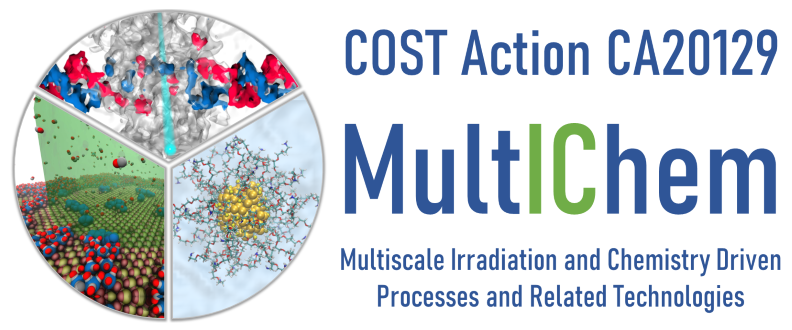Leader: Dr. Harald Plank
Technical University of Graz, Institute of Electron Microscopy and Nanoanalysis (Graz, Austria)
E-mail: harald.plank@felmi-zfe.at
Objective:
The activities conducted by WG2 aim at the efficient transfer of fundamental knowledge on Irradiation-Driven Chemistry (IDC) phenomena from the academic partners to the non-academic and industrial partners by means of the cooperation mechanisms provided within the COST Action (staff exchange, joint workshops and conferences, etc.). WG2 will work on validation of the scientific outcomes produced by WG1 at the more complex, technology-relevant level.
- Validation of the multiscale models of radiation-induced biodamage based on the nanoscale understanding of IDC and subsequent molecular damage and related phenomena (relative biological effectiveness, DNA damage response, etc.) against cell survival and clinical (animal studies) data.
- Standardisation of the FEBID-based nanofabrication methods. Suggestions on optimisation of the existing technological solutions from the multiscale modelling of IDC in the FEBID process.
- Recommendations on optimisation of technological protocols for fabrication of nanoparticles (free structures and composites with MOF) with enhanced catalytic and radiosensitising properties.
- Optimisation of computational tools for multiscale modelling of IDC for the use in technological applications related to nanofabrication, characterisation of NPs and nanostructures. Development of computational methods for understanding the photophysical properties of porous supports as well as diffusion and sorption in these composite systems, including both MOFs and NP-MOF composites. It is expected that tools developed during the Action could substitute (or become an alternative to) expensive laboratory experiments, and thus reduce the experimental and technological costs.
